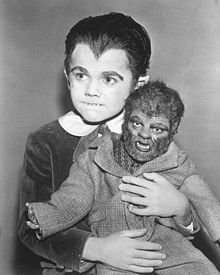Skylar
Diamond Member
- Jul 5, 2014
- 51,016
- 14,757
- 2,180
No, they have not. Rogers v Bellei 401 U.S. 815 (1971) confirms that children born overseas can be U.S. citizens at birth.He was also born American:No, that's when he was born a Canadian.22 December, 1970When did he become an American?
Immigration and Nationality Act of 1952
SEC. 301. (a) The following shall be nationals and citizens of the United States at birth: ...
(7) a person born outside the geographical limits of the United States and its outlying possessions of parents one of w'hom is an alien, and the other a citizen of the United States who, prior to the birth of such person, was physically present in the United States ' or its outlying possessions for a period or periods totaling not less ' than ten years, at least five of which were after attaining the age " of fourteen years: Provided^ That any periods of honorable service in the Armed Forces of the United States by such citizen parent may be included in computing the physical presence requirements " of this paragraph.
He was also Canadian at birth. There is no rule or law that makes one override the other.
He was 43. Are you claiming he was not a U.S. citizen until that time? He certainly was not a permanent resident alien....so is your claim that he was an illegal alien until 2014?How old was he when he stopped being a Canadian?
The Supreme Court has found that the only way someone born outside the United States can become a citizen is naturalization. .
Yes, they have.
A person born out of the jurisdiction of the United States can only become a citizen by being naturalized, either by treaty, as in the case of the annexation of foreign territory, or by authority of Congress, exercised either by declaring certain classes of persons to be citizens, as in the enactments conferring citizenship upon foreign-born children of citizens, or by enabling foreigners individually to become citizens by proceedings in the judicial tribunals, as in the ordinary provisions of the naturalization acts.
US v. Wong Kim Ark
Rogers v. Bellie never contradicts this. Nor even addresses it. Rogers is about the removal of citizenship for one who has already received it via a naturalization act. Though Rogers does go into elaborate detail as to the difference between constitutional citizenship and citizenship created by congressional statute.
Which is one of the reasons that in this discussion you really don't want to be citing Rogers; it weakens you case. Not strengthens it.
Rogers v. Bellie said:Congress has the power to impose the condition subsequent of residence in this country on appellee, who does not come within the Fourteenth Amendment's definition of citizens as those "born or naturalized in the United States," and its imposition is not unreasonable, arbitrary, or unlawful.
Rogers makes it clear that citizenship for those children born outside the US does not come from the Fourteenth amendment, nor meet its definitions. It explicitly states that the source of citizenship is statute, specifically Section 301(a) of the Act, 8 U.S.C. § 1401(a). An immigration and nationality act. And that citizens who acquire their citizdnship by statute are subject to requirements and terms of loss of citizenship....that those whose citizenship is derived from the constitution are not subject to.
Demonstrating that citizenship acquired from being born in the US is derived from the Constitution and greater, with citizenship only being lost voluntarily. While citizenship derived from statute is lesser, being subject to the terms of statute and being stripped involuntarily..
With the appellee LOSING his citizenship involuntarily. Something the Rogers court made clear could not happen for a citizen whose citizenship was derived from the constitution.
Rogers v. Bellie said:Thus, at long last, there emerged an express constitutional definition of citizenship. But it was one restricted to the combination of three factors, each and all significant: birth in the United States, naturalization in the United States, and subjection to the jurisdiction of the United States. The definition obviously did not apply to any acquisition of citizenship by being born abroad of an American parent. That type, and any other not covered by the Fourteenth Amendment, was necessarily left to proper congressional action.
Rogers v. Bellei 401 U.S. 815 (1971)
Rogers finds that citizenship derived by congressional action does not meet the constitutional definition of citizenship. And that the appellee's citizenship was fully deniable, subject to congressional statute. While constitutional citizenship is beyond the congress's authority to deny
As natural born citizenship is undeniably derived from the constitution it could easily follow that citizenship not derived from the constitution is not natural born citizenship. As natural born citizenship is not deniable. While citizenship derived from statute is fully deniable.
Last edited:


